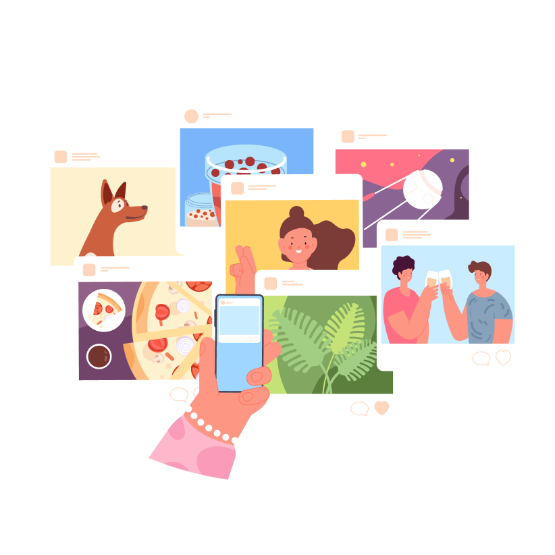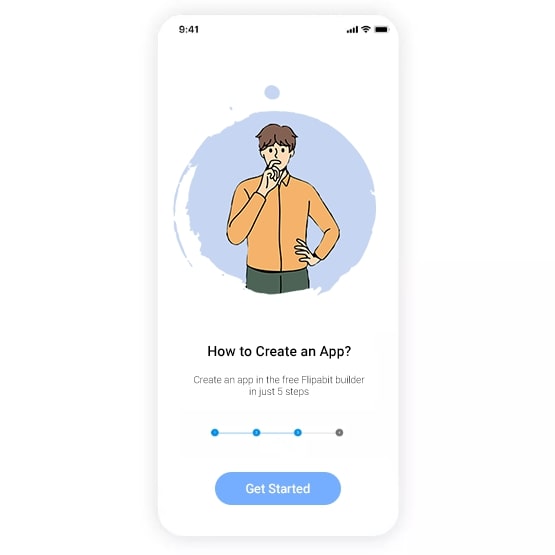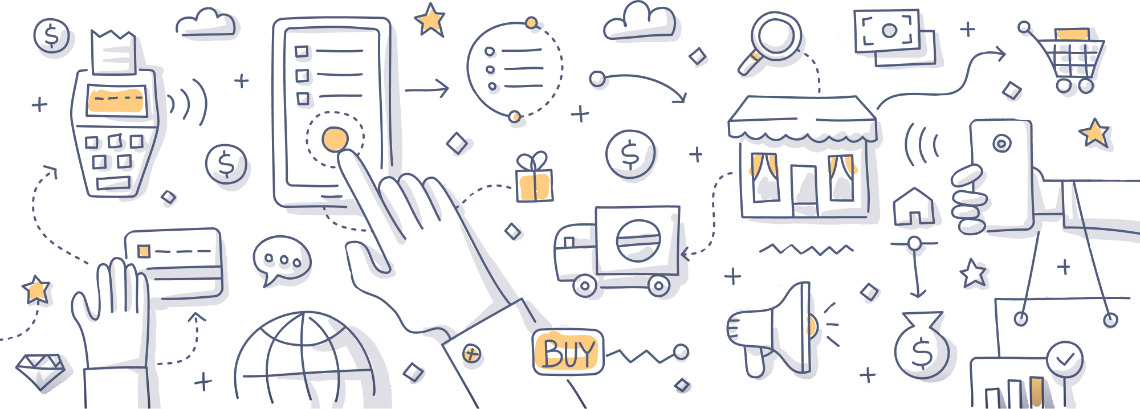Social media has changed the way we communicate. Now we spend a large portion of our time arguing in the comments, scrolling through our feeds, and sharing memes or videos. It’s a saturated market with some big players, but with such a massive audience, you can definitely grab your slice of the pie.


Create a social media app for Android or IOS with the Flipabit following these steps:
These apps bring people together by allowing them to communicate, upload content, and share it publicly. Considering how large the user base is, these kinds of social media are extremely valuable in the business world. Examples include Facebook, LinkedIn and others.
These apps let you post and save content to your personal board, which other members of the community can then subscribe to. Most users use networks like Pinterest and Flipboard to find new ideas and inspiration.
These allow a user to leave reviews and summaries regarding brands, products, services, travel, and transport. One example is TripAdvisor, which is the largest travel platform in the world where people can share their opinions about specific destinations, hotels, businesses, and more.
Users can communicate anonymously by hiding their identity behind a username. This is a new trend which is quickly gaining momentum and is reminiscent of the early days of the internet when you could have a totally separate, anonymous life online. Examples include Whisper, Secret, and After School.
Forums and communities are one of the earliest forms of social media. Their functionality is based on retrieving and exchanging information. Users can discuss various topics in groups or between individuals. They can ask questions, and get answers from experts or simply knowledgeable people. These include Quora, Reddit.
These apps allow you to find and interact with people that have similar interests or hobbies. This is an ideal approach for building communities within a particular industry. For example, an app called Academia is intended for scientists, and Athlinks is for professional athletes.
Intended for sharing photo and video content. Apps of this type include YouTube, TikTok, VSCO, Instagram, and Snapchat.
This includes blogging and microblogging services. Users create and publish posts with text or text-media content. Examples include platforms like Twitter, Tumblr, and Blogger.
This feature is non-negotiable. The only way an app is going to thrive is if users can interact with content uploaded by other users.
Social media is meant to connect people, so a chat feature is vital to these kinds of apps. Add the ability to exchange text, voice and video messages in private messages and group chats.
With hashtags, users can arrange, search, and share relevant content that contains keywords or phrases. Hashtags are used across all global social media platforms. By clicking on a hashtag, users can see other posts with the same tag.
This feature allows you to mark where a photo or video was taken or recorded. It can be used to promote a business by marking popular places nearby.
Profile customization allows the user to express their personality. This can include uploading an avatar, setting a background, changing the color scheme, etc.
While hidden positive and negative ratings are a new trend (at least Instagram and YouTube are experimenting with it), users still enjoy getting instant approval in the form of likes and comments under a newly posted post or photo.
Many users love video calls, perhaps because they feel more personal, like the other person is there with them. Video calls have become especially relevant during the pandemic, and are unlikely to lose their relevance in the near future.
Notifications keep the user informed about everything going on with their account. They can be a way of announcing new messages, likes, comments, subscriptions, friend requests, and more, all without having to open the app.
Oddly enough, this feature increases your own social media app’s popularity and quickly boosts organic traffic as users engage with other social media.

The app is free, but it contains digital products. For example, Facebook sells packs of stickers that you can then use when chatting in the official messenger.
Having paid subscriptions to some closed groups and channels allows you to monetize the application through user-created content.
The app is free to download, but to unlock certain features or content, you have to buy a subscription for a set amount of time: usually a week, month, or year.
This is one of the easiest ways to generate income for free services with a large audience. For example, YouTube shows ads before or during a video, and Instagram adds relevant posts to users' stories or feeds.
The number of active social media users now
The number of of internet users research products on social media.
Approximately 61% of the world’s population have a social media account.
Social media can be used for dating, communication, and creating friendly relationships between people with similar interests. They can also be used for work, recreation, and interaction with other users’ content.
Social media allows you to express your identity, easily meet people, stay in touch, satisfy your curiosity, save memories and contacts, and promote your personal brand or yourself as an opinion leader or specialist.
A Simple and Convenient UI. The first thing you should consider when creating your own social media app is a user-friendly interface. Users want everything to run smoothly and to have a clear understanding of what to do with the app; they want to know which buttons to press and so on. Regardless of your target demographic, your social media app should have a simple, easy-to-navigate user interface. Considering that there are over 4 billion smartphones in use today, your app should be configured to be viewed on the most common devices, otherwise you risk losing part of your audience.
The ability to share content. Most social media users want to share information with their audience. Sharing content is one of the key features of any social network, as it facilitates communication between people. Add the ability to post, send photos or videos, and leave comments to your app.
Secure Login. The most common app vulnerabilities are due to incorrect security settings. But the highest risk comes from weak authentication measures. Social media app users can share information publicly or privately, so information should be protected as much as possible. A signup and authentication system is the most important element of a service's security. In most cases, it’s something that’s better when not built from scratch, because there are plenty of out-of-the box solutions like Firebase, and Apple or Google sign-in.
Analytics. Tracking and analyzing statistical data allows you to better understand your audience and interact with them more effectively. Analytics are invaluable for growing the popularity of any account.
See how Flipabit can help you create an app you'll love
The Flipabit App Maker lets you build social news apps, microblogging platforms, and media sharing services. With features to increase attendee engagement and powerful monetization tools, it's easy to make a successful social media app.